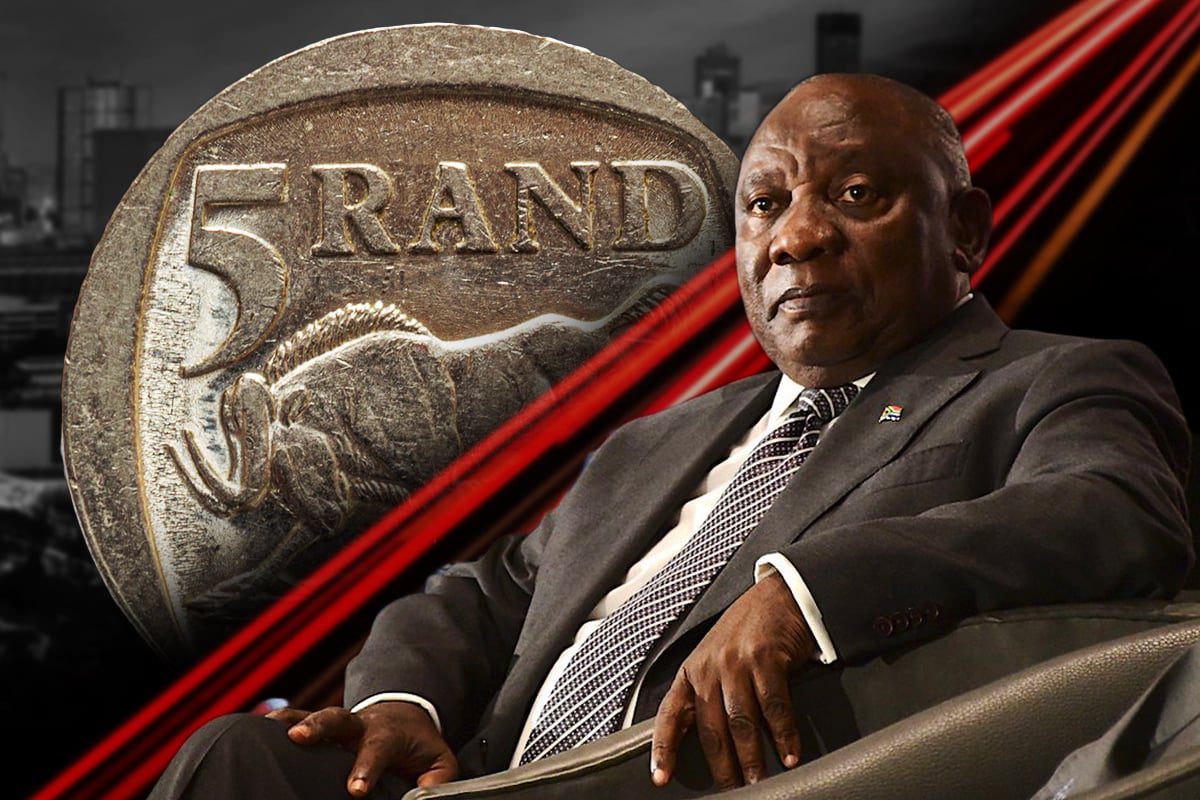Global Courant 2023-05-12 14:54:05
The South African rand fell to its weakest point on Friday (May 12), falling as low as R19.47 in early intraday trading before retreating to around R19.30.
The rand took another serious hit on Friday as financial group JPMorgan cut the country’s GDP forecast amid expectations of more power outages. This comes on the back of the US embassy accusing South Africa of arming Russia, and investor fears over the collapse of the country’s power grid.
According to Reuters, JPMorgan is forecasting a recession for South Africa, with a 0.2% decline in South Africa’s GDP in 2023 against a previous forecast of 0.3% growth.
Reuters reported that investor sentiment regarding South Africa was largely negative as the rolling blackouts showed no signs of slowing down.
April 2020 was the previous low for the currency during the Covid-19 pandemic when it hit R19.35/USD.
These factors are currently hitting the currency:
Ongoing load shedding, with rising levels expected in coming months Expectations of extremely low growth to recession for the economy due to blackouts Market fears of power grid collapse, with no action plan South Africa accused of arming Russia by US Embassy Investors are concerned Concerns about the future of US-South Africa preferential trade agreements Concerns remain about South Africa’s just energy transition as talks continue to expand coal-fired power The dollar continues to lead thanks to its safe haven state
To make matters worse, the US ambassador announced that he was certain a Russian ship had picked up weapons in South Africa last year, further fueling the sentiment of foreign investors.
This comes after the rand has been slipping in recent months as investors become more risk averse and avoid its volatility.
Indications of downward momentum were shown by TreasuryONE, which reported a massive sell-off of domestic bonds worth around R7 billion in the early parts of this week.
“The market is concerned about stagnation in the local economy and investors do not want to invest in a country with poor short-term prospects,” said TreasuryONE.
At a public talk this week (May 10), the governor of the South African Reserve Bank (SARB) said the rand was one of the worst-performing emerging market currencies this year.
ETM Analytics added that only if there is a concrete plan to end the load shedding will the rand’s weak position continue.
While burden shedding remains a problem, cozy ties with Russia now add salt to the wound.
According to Intellidex director Peter Attard Montalto, the latest allegations from the US embassy about South Africa’s ties to Russia are one of many factors that have nailed the country.
While South Africa’s ties to Russia are not new, it appears that the US and investors are no longer accepting the government’s claims that it remains neutral in the most significant geopolitical event of the past year.
According to Attard Montalto, there have been foreign policy concerns among investors for more than a year, since the start of the war in February 2022, when Russia invaded Ukraine.
Over this time, impressions from the US have soured, he said, culminating in increased chatter from the US embassy, which has now resulted in the latest accusations.
“This is not out of the blue, this is a long line of concerns from the US,” he said. This alongside concerns over money laundering and terrorism financing – which have led to South Africa being graylisted by the Financial Action Task Force – and issues with the Just Energy Transition.
Markets reacted negatively to the news due to South Africa’s economic ties to the United States through trade deals such as the African Growth and Opportunity Act (AGOA), which generate billions of rands in trade each year.
“Investors are now concerned about the economic implications of this – not just from AGOA, but also from the general cutting off of cooperation for aid and other financing,” said Attard Montalto.
There are different types of support that USA South Africa offers. With AGOA, a renewal cycle for that is coming, which is now in jeopardy – but there is also a lot of help and technical support that the US offers the country. Various governmental and non-governmental entities can be affected.
While South Africa will certainly feel the impact of the geopolitical snafu, Attard Montalto said the country is likely still a long way from sanctions.
What the embassy address does indicate is that it is now clear to the US that it does not believe South Africa when it says it is not aligned with the war between Russia and Ukraine.
This is something investors haven’t believed in a while, Attard Montalto said.
“It’s the implications of going down that road, and actually choosing Russia, that will have more dramatic implications going forward — which may include sanctions,” he said. “But I don’t think we’re going to see a dramatic pullback of US companies and things like that.”
The storm is getting bigger due to the energy crisis. The US is one of many countries that have signed the South African Just Energy Transition (JET), and these agreements may now be in jeopardy.
Attard Montalto said the JET has been in trouble for some time, with statements by the electricity minister about delaying the closure of coal-fired power plants being one of the more recent problems that have emerged.
“There have been problems already in the second half of last year – so (the position of the US embassy) is not necessarily a new problem, but it does amplify the problems of getting money to support the transition.”
The analyst said the rand sell-off on Thursday after the embassy’s press briefing came after several days of rand weakness, which stemmed from blackout risks and panic over the grid collapsing.
He said understanding of a possible power grid collapse is low, and while there is a non-zero chance it will happen, it is highly unlikely.
Instead, the real concern is that there appears to be no plan to address this low probability event, when all announced action plans focus on longer term energy security and nothing to help the grid in the short term.
In the near term, increased stages of tax shedding, up to Stage 8 and beyond, are much more likely, he said.
Read: Why there is sudden panic about ‘grid collapse’ in South Africa








